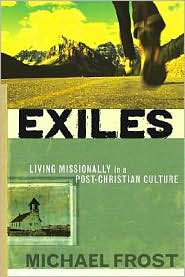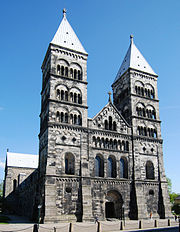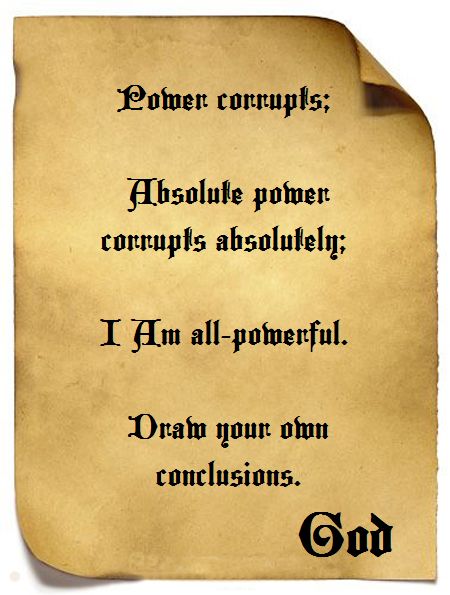

Einstein, Albert (1879-1955)
איינשטיין והדת - משה (מקס) ימר
Einstein and Religion - Max Jammer
Einstein and Religion - Max Jammer
"the word God is for me nothing more than the expression and product of human weaknesses,
the Bible a collection of honorable but still primitive legends which are nevertheless pretty childish. No interpretation no matter how subtle can (for me) change this"
the Bible a collection of honorable but still primitive legends which are nevertheless pretty childish. No interpretation no matter how subtle can (for me) change this"
Albert Einstein

Click map above to launch an interactive version with individual country scores.
The darker the blue, the higher the perceived level of public sector corruption.
God and corruption
Do Post-Christian societies prove
a correlation between
religions and corruption?
a correlation between
religions and corruption?
See further for yourself...

Last update - 14:44 17/11/2009
Israel ranks No. 32 least corrupt country in the world
By Lior Detel, The Marker
Israel ranks 32 out of 180 on the list of the world's corrupt countries, according to a study released by the International Transparency Organization on Tuesday.
The ranking is one spot lower than last year's, apparently due to the election of a new government and the incarceration of former ministers Shlomo Benizri and Abraham Hirchson.
In 2007 the country was ranked 30, and in 2006, 34 - the lower the ranking, the more corrupt a country is considered to be.
The study defined corruption as misuse of a position of public influence to further one's personal interests.
According to the study, Israel has been on a fast and steady decline since the the ranking began in 1997. Then, Israel was considered among 15 countries with the least amount of political corruption.
The ranking is based on a grade which combines data from 13 questionnaires, executed by 11 different research centers. The results are based on the answers of 28,000 business people and experts from Israel and abroad.
According to the final results, Israel ranked the same as Spain, with both countries receiving the grade 6.1. This put it ahead of the Dominican Republic, Portugal and Puerto Rico (35), Botswana and Taiwan (37). Some of the countries ranked lower than Israel include Poland (49), Italy (63), China (79), Syria (126) and Iran (168).
According to the study, News Zealand, Denmark, Singapore and Sweden are the least corrupt countries in the world, while Somalia, Afghanistan, Myanmar and Sudan are considered the most corrupt countries in the world.
This is the first time New Zealand, graded 9.4, has been ranked as the country with the least amount of corruption in the world, followed closely by Denmark with the grade of 9.3.
The United States ranked 19, just after Britain, which came in at 17.
Post-Christian New Zealand
rank No. 1
least corrupt country in the world
-----------
God and government: the New Zealand experience - Page 69
Rex J. Ahdar, John Stenhouse - Political Science - 2000 - 146 pages
In each around 300 Christian activists, lay and clerical, gathered to discuss
evangelism strategies for post- Christian New Zealand.71 One significant ...
evangelism strategies for post- Christian New Zealand.71 One significant ...
http://tiny.cc/hkyoc

1 page matching
evangelism strategies for post-Christian New Zealand
in this book Page 69
God and government: the New Zealand experience
By Rex J. Ahdar, John Stenhouse
----
Denmark and Sweden,
with estimated
atheists and agnostics
43% to 80%.
atheists and agnostics
43% to 80%.
rank No. 2, & 4
least corrupt counties
in the world
least corrupt counties
in the world
-----------
SINGAPORE - with estimated
14% Christians.
14% Christians.
rank No. 3
least corrupt county in the world
least corrupt county in the world

-----------
Jewish Israel (a semi-theocracy) - ranks No. 32
least corrupt county in the world
Gideon Levy / Let's face the facts, Israel is a semi-theocracy

Ruth Halperin-Kaddari
"As long as Israel is under the exclusive jurisdiction
of religious law,
of religious law,
women might still find themselves
jeopardized
jeopardized
and needing to give up all their secular
and international rights,"
--and international rights,"
Ruth Halperin-Kaddari, a law professor
at Bar-Ilan University
at Bar-Ilan University
The religious Bar-Ilan University aims to forge
closer links
closer links
between Torah and universal studies.
Bar-Ilan prof. seeks global standard for fair divorce
----------------
Christian Italy and Muslim
Saudi Arabia
Saudi Arabia
rank both at No. 63
least corrupt counties in the world
least corrupt counties in the world
What is the Corruption
Perceptions Index?
The Corruption Perceptions Index (CPI) measures the perceived
level of public-sector corruption in 180 countries and territories around the world.
The CPI is a "survey of surveys", based on 13 different expert and business surveys.
level of public-sector corruption in 180 countries and territories around the world.
The CPI is a "survey of surveys", based on 13 different expert and business surveys.
- CPI 2009 results
- Press release: Corruption threatens global economic recovery,
- greatly challenges countries in conflict [English] [French] [Spanish]
- Multimedia: videos, podcasts, and an interactive infographic
- Social media: join the discussion

VIDEO:
Huguette Labelle, Chair,
Transparency International
----------------------
The Top Four Least Corrupt Countries,
2009 and their religions
2009 and their religions
For the complete please list scroll down
1) New Zealand
- Religion
According to the 2006 census, Christianity is the predominant religion in New Zealand, held by 55.6% of the population, a decrease from 60.6% at the 2001 census. Another 34.7% indicated that they had no religion, up from 29.6% in 2001, and 5% affiliated with other religions. The main Christian denominations are Anglicanism, Roman Catholicism, Presbyterianism and Methodism. There are also significant numbers who identify themselves with Pentecostal and Baptist churches and with the LDS (Mormon) church. The New Zealand-based Ratana church has adherents among Māori. According to census figures, other significant minority religions include Hinduism, Buddhism, and Islam.[84][86]
- Other Statistics
In a survey of the OECD amongst 30 democratic nations, New Zealand ranked an above-average 8th place in terms of the happiness of its populace (defined by the averaged responses to questions about personal contentment and positive feelings experienced recently) even though the country was noted as ranking relatively low amongst the surveyed nations in personal wealth (defined by averaged personal income).[87]
A Christian State?
evangelism strategies for post-Christian New Zealand.79. One significant obstacle to a viable socio-political consensus is the ...
www.jstor.org/stable/1051480 -
by RJ Ahdar - 1996 - Cited by 2 - Related articles
Christendom, Clericalism, Church And Context
... played a very important role in helping to maintain and conserve a vital and living Christian faith within an increasingly post-Christian New Zealand, ...
jmm.aaa.net.au/articles/8481.htm - Cached -- [PDF]
GO into all the world GO into all the world
File Format: PDF/Adobe Acrobat - View as HTML
new church being planted by Joe and Amy in “post-Christian” New Zealand; about Jordan who ministers to AIDS orphans in Kenya, he himself having ...
www.missionservices.org/horizons/2009_06.pdf
Exiles: Living Missionally in a
Post-Christian Culture
About the Author
Michael Frost is the Director of the Centre for Evangelism and Global Mission at Morling Baptist Seminary in Sydney, Australia.
He travels and speaks on the emergent church in the U.S., Canada, and the UK, as well as Australia and New Zealand.
The “Probably” Atheists New Zealand Bus Drive is Definitely On!
December 12, 2009

New Zealand Atheist Bus Campaign spokesman Simon Fisher said the response to the campaign had been overwhelming and mostly positive.…The donations had been “rolling in fast” and the group had now doubled and capped the target to $20,000, he said. It would pay for advertisements on 12 buses in Auckland, eight in Wellington and four in Christchurch, each staying on the buses for four weeks.Mr Fisher said the reaction had been far beyond his expectations and the new adverts could be on buses as early as January.“Lots of people are asking `how can we help’ and saying `finally we have something like this in New Zealand’.”
The “don’t get” Stuff-ed article also reports on some of the reaction of the “religious nut jobs,” which if this sampling is normative, has been positive and has viewed this as an opportunity with which to redeem!
Finally we have something like this in New Zealand… If “people” really have been saying that, one wonders what country they have been living in, as New Zealand has been a post-Christian land for some time, and there has been freedom of speech… cat got their tongue? Maybe they feel like they have a voice now! Although, I guess 2 individuals count as people!
---
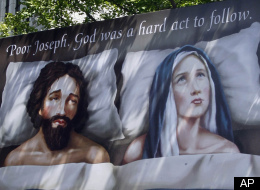
Controversial Billboard Of Joseph And Mary In Bed: God 'A Hard Act To Follow'
RAY LILLEY | 12/17/09 01:03 AM | 

WELLINGTON, New Zealand — A billboard at a New Zealand church depicting a downcast Joseph lying beside Mary in bed and the heading "God is a hard act to follow" provoked more than the intended reconsideration of the meaning of Christmas.
The sign was defaced by a paint-wielding vandal just hours after it was erected Thursday outside the St. Matthew-in-the-City Anglican church in Auckland, and triggered passionate and sometimes angry debate on talk radio and the Internet.
Church vicar Archdeacon Glynn Cardy said the billboard was intended to challenge stereotypes about the way Jesus was conceived and get people talking about the Christmas story.
"This billboard is trying to lampoon and ridicule the very literal idea that God is a male and somehow this male God impregnated Mary," said Cardy, who described his church as having very liberal ideas about Christianity.
"We would question the Virgin Birth in any literal sense. We would question the maleness of God in any literal sense," he said.
On the billboard – painted to mimic the fresco style commonly used in church murals – Mary and Joseph are in bed side-by-side. Joseph is looking down. Mary, looking heavenward, appears sad. The caption reads: "Poor Joseph. God is a hard act to follow."
Auckland Catholic Diocese spokeswoman Lyndsay Freer said the billboard implied the Virgin Mary and Joseph had just had sex and was inappropriate, disrespectful and offensive to Christians.
"We would see a billboard like that being used by an anti-Christian group to actually poke fun at the divinity of Christ," Freer told National Radio.
Christ's conception was a profound theological question and the billboard would not "give rise to any intelligent discussion on the birth of Jesus," she said.
Many messages on the church Web site attacked the image, while others defended it.
"This billboard and your 'sermon' is a sacrilege," one visitor, identified as Karen, posted.
Another, identified as Andrew M, wrote: "I for one think this is an excellent billboard. Challenging and thought-provoking. Just what it was intended to be."
Cardy said he understood that some people were upset by the image but said he was disappointed the billboard had been defaced. He said he did not intend to take it down.
____
On the 'Net:
http://www.stmatthews.org.nz
Jim Hopkins: Let it remain - it's our history, the good and the bad
4:00 AM Friday Feb 5, 2010
Leave windswept Whellington to its earthquaked fate and move to Dargaville.
And if the anthem tweakers and curriculum twisters and every last member of the anal Geography Board won't move, good riddance. And we could have a President.
That tireless old bonkmeister, Jacob Zuma, perhaps, or Mr Chavez, or Mr Mugabe, or Colonel Gaddaffi, or the bloke in Iran with the bomb or whomever's in charge of North Korea this week.
We can't footle about here. We mustn't be half-hearted and dithersome. If change is what we want, it must be all aboard across the board.
Change everything. Botox every old, wrinkly, feature we consider unfashionable.
Give Outer Roa a flag job, an anthem job, a constitution job and any other cosmetic enhancement the commentariat considers necessary for proper political education of the unenlightened and true fostering of national identity.
No matter we already have an identity. The chattering classes don't like it. Too vulgar, sports-minded, utilitarian and bellicose. Too much lingering pioneer machismo and other colonial residues.
Too much drinking and footy and no-one paying attention to the clever folk who studied Marx at university.
So the flag's a target. And they'll get it. Eventually. But they won't respect themselves in the morning. And neither will we. Because whatever we run up the flagpole, we won't have changed.
We'll still be the same mid-Victorian puritans we've always been. Home will still be a post-Christian, Greco-Roman, English, Polynesian fragment; the world's last port of call.
An outpost of cultures and traditions - all of which deserve respect.
As we can't pick our parents, so we can't pick our history. We've got to take the lot, wars and all. History is because it was. It's been, and we've done it.
Flags are reminders of that, like old family photos.
They recall mistakes and triumphs, failings and virtues. And that's why they should not be lightly cast aside. Let the flag remain. Changing it will bring no unity to a dangerously divided nation.
Copyright ©2010, APN Holdings NZ Limited
2) Denmark
Religion
According to official statistics from January 2009, 81.5%[87] of the population of Denmark are members of the Lutheran state church, the Danish National Church (Den Danske Folkekirke), which is established by the Constitution. If immigrants and descendants of immigrants are excluded from the statistics, the member rate is even higher, approximately 90.3%[citation needed]. According to article 6 of the Constitution, the Royal Family must belong to this Church, though the rest of the population is free to adhere to other faiths.
Denmark's Muslims make up 2% of the population and the country's second largest religious community.[88] The oldest state-recognised religious societies and churches are the following:
- Roman Catholicism, recognised by the state since 1682
- The Reformed Church, recognised by the state since 1682.
- Judaism, recognised by the state since 1682.
Forn Siðr (English: The Old Way), based on the much older, native religion, is one of the most recently recognised by the state, gaining official recognition in November 2003.[89]
Religious societies and churches do not need to be state-recognised in Denmark and can be granted the right to perform weddings and other ceremonies without this recognition.
According to the most recent Eurobarometer Poll 2005,[90] 31% of Danish citizens responded that "they believe there is a god", whereas 49% answered that "they believe there is some sort of spirit or life force" and 19% that "they do not believe there is any sort of spirit, god, or life force". According to a 2005 study by Zuckerman, Denmark has the third highest proportion of atheists and agnostics in the world, estimated to be between 43% and 80%.[91][92]
3) Singapore
Religion
Singapore is a multi-religious country. According to Statistics Singapore, around 51% of resident Singaporeans (excluding significant numbers of visitors and migrant workers) practice Buddhism and Taoism. Muslims constitute 15%, of whom Malays account for the majority with a substantial number of Indian Muslims and Chinese Muslims. About 14%, mostly Chinese, Eurasians, and Indians, practice Christianity - a broad classification including Catholicism, Protestantism and other denominations. Smaller minorities practice Sikhism, Hinduism and others, according to the 2000 census.[84]
Some religious materials and practices are banned in Singapore. The Jehovah's Witnesses, for example, are prohibited from distributing religious materials[85] and are sometimes jailed for their conscientious refusals to serve in the Singaporean military.[86]
About 15% of the population declared no religious affiliation.
4) SWEDEN
Religion
Before the 11th century, Swedes adhered to Norse paganism, worshiping Æsir gods, with its centre at the Temple in Uppsala. With Christianization in the 11th century, the laws of the country were changed, forbidding worship of other deities into the late 19th century.
After the Protestant Reformation in the 1530s, a change significantly affected by Martin Luther's Swedish associate Olaus Petri, the Church and state were separated and the authority of Roman Catholic bishops abolished, allowing Lutheranism to prevail. This process was completed by the Uppsala Synod of 1593. During the era following the Reformation, usually known as the period of Lutheran Orthodoxy, small groups of non-Lutherans, especially Calvinist Dutchmen, the Moravian Church and Walloons or French Huguenots from Belgium, played a significant role in trade and industry, and were quietly tolerated as long as they kept a low religious profile. The Sami originally had their own shamanistic religion, but they were converted to Lutheranism by Swedish missionaries in the 17th and 18th centuries.
| Church of Sweden[107] | |||||||
| Year | Population | Church members | Percentage | ||||
|---|---|---|---|---|---|---|---|
| 1972 | 8,146,000 | 7,754,784 | 95.2 % | ||||
| 1980 | 8,278,000 | 7,690,636 | 92.9 % | ||||
| 1990 | 8,573,000 | 7,630,350 | 89.0 % | ||||
| 2000 | 8,880,000 | 7,360,825 | 82.9 % | ||||
| 2005 | 9,048,000 | 6,967,498 | 77.0 % | ||||
| 2006 | 9,119,000 | 6,893,901 | 75.6 % | ||||
| 2007 | 9,179,000 | 6,820,161 | 74.3 % | ||||
| 2008 | 9,262,000 | 6,751,952 | 72.9 % | ||||
Not until liberalization in the late 18th century, however, were believers of other faiths, including Judaism and Roman Catholicism, allowed to openly live and work in Sweden, and it remained illegal until 1860 for Lutheran Swedes to convert to another religion. The 19th century saw the arrival of various evangelical free churches, and, towards the end of the century secularism, leading many to distance themselves from Church rituals. Leaving the Church of Sweden became legal with the so-called dissenter law of 1860, but only under the provision of entering another denomination. The right to stand outside any religious denomination was established in the Law on Freedom of Religion in 1951.
At the end of 2008, 72.9% of Swedes belonged to the Church of Sweden (Lutheran); this number has been decreasing by about 1% a year for the last two decades. Church of Sweden services are sparsely attended (hovering in the single digit percentages of the population).[108]
At least 45% and up to 85% of the population can be classified as atheist or agnostic. The reason for the large number of inactive members is partly that until 1996, children became members automatically at birth if at least one of the parents was a member. Since 1996, only children that are christened become members. Some 275,000 Swedes are today members of various free churches (where congregation attendance is much higher), and, in addition, immigration has meant that there are now some 92,000 Roman Catholics and 100,000 Eastern Orthodox Christians living in Sweden.[109] Because of immigration, Sweden also has a significant Muslim population. Almost half a million are Muslims by tradition, but approximately 5% (25,000) of these actively practise Islam (in the sense of attending Friday prayer and praying five times a day).[110] (See Islam in Sweden.)
Corruption Perceptions Index 2009
- The Corruption Perceptions Index (CPI) table shows a country's ranking and score, the number of surveys used to determine the score, and the confidence range of the scoring.
- The rank shows how one country compares to others included in the index. The CPI score indicates the perceived level of public-sector corruption in a country/territory.
- The CPI is based on 13 independent surveys. However, not all surveys include all countries. The surveys used column indicates how many surveys were relied upon to determine the score for that country.
- The confidence range indicates the reliability of the CPI scores and tells us that allowing for a margin of error, we can be 90% confident that the true score for this country lies within this range.
Rank | Country/Territory | CPI 2009 Score | Surveys Used | Confidence Range |
1 | New Zealand | 9.4 | 6 | 9.1 - 9.5 |
2 | Denmark | 9.3 | 6 | 9.1 - 9.5 |
3 | Singapore | 9.2 | 9 | 9.0 - 9.4 |
3 | Sweden | 9.2 | 6 | 9.0 - 9.3 |
5 | Switzerland | 9.0 | 6 | 8.9 - 9.1 |
6 | Finland | 8.9 | 6 | 8.4 - 9.4 |
6 | Netherlands | 8.9 | 6 | 8.7 - 9.0 |
8 | Australia | 8.7 | 8 | 8.3 - 9.0 |
8 | Canada | 8.7 | 6 | 8.5 - 9.0 |
8 | Iceland | 8.7 | 4 | 7.5 - 9.4 |
11 | Norway | 8.6 | 6 | 8.2 - 9.1 |
12 | Hong Kong | 8.2 | 8 | 7.9 - 8.5 |
12 | Luxembourg | 8.2 | 6 | 7.6 - 8.8 |
14 | Germany | 8.0 | 6 | 7.7 - 8.3 |
14 | Ireland | 8.0 | 6 | 7.8 - 8.4 |
16 | Austria | 7.9 | 6 | 7.4 - 8.3 |
17 | Japan | 7.7 | 8 | 7.4 - 8.0 |
17 | United Kingdom | 7.7 | 6 | 7.3 - 8.2 |
19 | United States | 7.5 | 8 | 6.9 - 8.0 |
20 | Barbados | 7.4 | 4 | 6.6 - 8.2 |
21 | Belgium | 7.1 | 6 | 6.9 - 7.3 |
22 | Qatar | 7.0 | 6 | 5.8 - 8.1 |
22 | Saint Lucia | 7.0 | 3 | 6.7 - 7.5 |
24 | France | 6.9 | 6 | 6.5 - 7.3 |
25 | Chile | 6.7 | 7 | 6.5 - 6.9 |
25 | Uruguay | 6.7 | 5 | 6.4 - 7.1 |
27 | Cyprus | 6.6 | 4 | 6.1 - 7.1 |
27 | Estonia | 6.6 | 8 | 6.1 - 6.9 |
27 | Slovenia | 6.6 | 8 | 6.3 - 6.9 |
30 | United Arab Emirates | 6.5 | 5 | 5.5 - 7.5 |
31 | Saint Vincent and the Grenadines | 6.4 | 3 | 4.9 - 7.5 |
32 | Israel | 6.1 | 6 | 5.4 - 6.7 |
32 | Spain | 6.1 | 6 | 5.5 - 6.6 |
34 | Dominica | 5.9 | 3 | 4.9 - 6.7 |
35 | Portugal | 5.8 | 6 | 5.5 - 6.2 |
35 | Puerto Rico | 5.8 | 4 | 5.2 - 6.3 |
37 | Botswana | 5.6 | 6 | 5.1 - 6.3 |
37 | Taiwan | 5.6 | 9 | 5.4 - 5.9 |
39 | Brunei Darussalam | 5.5 | 4 | 4.7 - 6.4 |
39 | Oman | 5.5 | 5 | 4.4 - 6.5 |
39 | Korea (South) | 5.5 | 9 | 5.3 - 5.7 |
42 | Mauritius | 5.4 | 6 | 5.0 - 5.9 |
43 | Costa Rica | 5.3 | 5 | 4.7 - 5.9 |
43 | Macau | 5.3 | 3 | 3.3 - 6.9 |
45 | Malta | 5.2 | 4 | 4.0 - 6.2 |
46 | Bahrain | 5.1 | 5 | 4.2 - 5.8 |
46 | Cape Verde | 5.1 | 3 | 3.3 - 7.0 |
46 | Hungary | 5.1 | 8 | 4.6 - 5.7 |
49 | Bhutan | 5.0 | 4 | 4.3 - 5.6 |
49 | Jordan | 5.0 | 7 | 3.9 - 6.1 |
49 | Poland | 5.0 | 8 | 4.5 - 5.5 |
52 | Czech Republic | 4.9 | 8 | 4.3 - 5.6 |
52 | Lithuania | 4.9 | 8 | 4.4 - 5.4 |
54 | Seychelles | 4.8 | 3 | 3.0 - 6.7 |
55 | South Africa | 4.7 | 8 | 4.3 - 4.9 |
56 | Latvia | 4.5 | 6 | 4.1 - 4.9 |
56 | Malaysia | 4.5 | 9 | 4.0 - 5.1 |
56 | Namibia | 4.5 | 6 | 3.9 - 5.1 |
56 | Samoa | 4.5 | 3 | 3.3 - 5.3 |
56 | Slovakia | 4.5 | 8 | 4.1 - 4.9 |
61 | Cuba | 4.4 | 3 | 3.5 - 5.1 |
61 | Turkey | 4.4 | 7 | 3.9 - 4.9 |
63 | Italy | 4.3 | 6 | 3.8 - 4.9 |
63 | Saudi Arabia | 4.3 | 5 | 3.1 - 5.3 |
65 | Tunisia | 4.2 | 6 | 3.0 - 5.5 |
66 | Croatia | 4.1 | 8 | 3.7 - 4.5 |
66 | Georgia | 4.1 | 7 | 3.4 - 4.7 |
66 | Kuwait | 4.1 | 5 | 3.2 - 5.1 |
69 | Ghana | 3.9 | 7 | 3.2 - 4.6 |
69 | Montenegro | 3.9 | 5 | 3.5 - 4.4 |
71 | Bulgaria | 3.8 | 8 | 3.2 - 4.5 |
71 | FYR Macedonia | 3.8 | 6 | 3.4 - 4.2 |
71 | Greece | 3.8 | 6 | 3.2 - 4.3 |
71 | Romania | 3.8 | 8 | 3.2 - 4.3 |
75 | Brazil | 3.7 | 7 | 3.3 - 4.3 |
75 | Colombia | 3.7 | 7 | 3.1 - 4.3 |
75 | Peru | 3.7 | 7 | 3.4 - 4.1 |
75 | Suriname | 3.7 | 3 | 3.0 - 4.7 |
79 | Burkina Faso | 3.6 | 7 | 2.8 - 4.4 |
79 | China | 3.6 | 9 | 3.0 - 4.2 |
79 | Swaziland | 3.6 | 3 | 3.0 - 4.7 |
79 | Trinidad and Tobago | 3.6 | 4 | 3.0 - 4.3 |
83 | Serbia | 3.5 | 6 | 3.3 - 3.9 |
84 | El Salvador | 3.4 | 5 | 3.0 - 3.8 |
84 | Guatemala | 3.4 | 5 | 3.0 - 3.9 |
84 | India | 3.4 | 10 | 3.2 - 3.6 |
84 | Panama | 3.4 | 5 | 3.1 - 3.7 |
84 | Thailand | 3.4 | 9 | 3.0 - 3.8 |
89 | Lesotho | 3.3 | 6 | 2.8 - 3.8 |
89 | Malawi | 3.3 | 7 | 2.7 - 3.9 |
89 | Mexico | 3.3 | 7 | 3.2 - 3.5 |
89 | Moldova | 3.3 | 6 | 2.7 - 4.0 |
89 | Morocco | 3.3 | 6 | 2.8 - 3.9 |
89 | Rwanda | 3.3 | 4 | 2.9 - 3.7 |
95 | Albania | 3.2 | 6 | 3.0 - 3.3 |
95 | Vanuatu | 3.2 | 3 | 2.3 - 4.7 |
97 | Liberia | 3.1 | 3 | 1.9 - 3.8 |
97 | Sri Lanka | 3.1 | 7 | 2.8 - 3.4 |
99 | Bosnia and Herzegovina | 3.0 | 7 | 2.6 - 3.4 |
99 | Dominican Republic | 3.0 | 5 | 2.9 - 3.2 |
99 | Jamaica | 3.0 | 5 | 2.8 - 3.3 |
99 | Madagascar | 3.0 | 7 | 2.8 - 3.2 |
99 | Senegal | 3.0 | 7 | 2.5 - 3.6 |
99 | Tonga | 3.0 | 3 | 2.6 - 3.3 |
99 | Zambia | 3.0 | 7 | 2.8 - 3.2 |
106 | Argentina | 2.9 | 7 | 2.6 - 3.1 |
106 | Benin | 2.9 | 6 | 2.3 - 3.4 |
106 | Gabon | 2.9 | 3 | 2.6 - 3.1 |
106 | Gambia | 2.9 | 5 | 1.6 - 4.0 |
106 | Niger | 2.9 | 5 | 2.7 - 3.0 |
111 | Algeria | 2.8 | 6 | 2.5 - 3.1 |
111 | Djibouti | 2.8 | 4 | 2.3 - 3.2 |
111 | Egypt | 2.8 | 6 | 2.6 - 3.1 |
111 | Indonesia | 2.8 | 9 | 2.4 - 3.2 |
111 | Kiribati | 2.8 | 3 | 2.3 - 3.3 |
111 | Mali | 2.8 | 6 | 2.4 - 3.2 |
111 | Sao Tome and Principe | 2.8 | 3 | 2.4 - 3.3 |
111 | Solomon Islands | 2.8 | 3 | 2.3 - 3.3 |
111 | Togo | 2.8 | 5 | 1.9 - 3.9 |
120 | Armenia | 2.7 | 7 | 2.6 - 2.8 |
120 | Bolivia | 2.7 | 6 | 2.4 - 3.1 |
120 | Ethiopia | 2.7 | 7 | 2.4 - 2.9 |
120 | Kazakhstan | 2.7 | 7 | 2.1 - 3.3 |
120 | Mongolia | 2.7 | 7 | 2.4 - 3.0 |
120 | Vietnam | 2.7 | 9 | 2.4 - 3.1 |
126 | Eritrea | 2.6 | 4 | 1.6 - 3.8 |
126 | Guyana | 2.6 | 4 | 2.5 - 2.7 |
126 | Syria | 2.6 | 5 | 2.2 - 2.9 |
126 | Tanzania | 2.6 | 7 | 2.4 - 2.9 |
130 | Honduras | 2.5 | 6 | 2.2 - 2.8 |
130 | Lebanon | 2.5 | 3 | 1.9 - 3.1 |
130 | Libya | 2.5 | 6 | 2.2 - 2.8 |
130 | Maldives | 2.5 | 4 | 1.8 - 3.2 |
130 | Mauritania | 2.5 | 7 | 2.0 - 3.3 |
130 | Mozambique | 2.5 | 7 | 2.3 - 2.8 |
130 | Nicaragua | 2.5 | 6 | 2.3 - 2.7 |
130 | Nigeria | 2.5 | 7 | 2.2 - 2.7 |
130 | Uganda | 2.5 | 7 | 2.1 - 2.8 |
139 | Bangladesh | 2.4 | 7 | 2.0 - 2.8 |
139 | Belarus | 2.4 | 4 | 2.0 - 2.8 |
139 | Pakistan | 2.4 | 7 | 2.1 - 2.7 |
139 | Philippines | 2.4 | 9 | 2.1 - 2.7 |
143 | Azerbaijan | 2.3 | 7 | 2.0 - 2.6 |
143 | Comoros | 2.3 | 3 | 1.6 - 3.3 |
143 | Nepal | 2.3 | 6 | 2.0 - 2.6 |
146 | Cameroon | 2.2 | 7 | 1.9 - 2.6 |
146 | Ecuador | 2.2 | 5 | 2.0 - 2.5 |
146 | Kenya | 2.2 | 7 | 1.9 - 2.5 |
146 | Russia | 2.2 | 8 | 1.9 - 2.4 |
146 | Sierra Leone | 2.2 | 5 | 1.9 - 2.4 |
146 | Timor-Leste | 2.2 | 5 | 1.8 - 2.6 |
146 | Ukraine | 2.2 | 8 | 2.0 - 2.6 |
146 | Zimbabwe | 2.2 | 7 | 1.7 - 2.8 |
154 | Côte d´Ivoire | 2.1 | 7 | 1.8 - 2.4 |
154 | Papua New Guinea | 2.1 | 5 | 1.7 - 2.5 |
154 | Paraguay | 2.1 | 5 | 1.7 - 2.5 |
154 | Yemen | 2.1 | 4 | 1.6 - 2.5 |
158 | Cambodia | 2.0 | 8 | 1.8 - 2.2 |
158 | Central African Republic | 2.0 | 4 | 1.9 - 2.2 |
158 | Laos | 2.0 | 4 | 1.6 - 2.6 |
158 | Tajikistan | 2.0 | 8 | 1.6 - 2.5 |
162 | Angola | 1.9 | 5 | 1.8 - 1.9 |
162 | Congo Brazzaville | 1.9 | 5 | 1.6 - 2.1 |
162 | Democratic Republic of Congo | 1.9 | 5 | 1.7 - 2.1 |
162 | Guinea-Bissau | 1.9 | 3 | 1.8 - 2.0 |
162 | Kyrgyzstan | 1.9 | 7 | 1.8 - 2.1 |
162 | Venezuela | 1.9 | 7 | 1.8 - 2.0 |
168 | Burundi | 1.8 | 6 | 1.6 - 2.0 |
168 | Equatorial Guinea | 1.8 | 3 | 1.6 - 1.9 |
168 | Guinea | 1.8 | 5 | 1.7 - 1.8 |
168 | Haiti | 1.8 | 3 | 1.4 - 2.3 |
168 | Iran | 1.8 | 3 | 1.7 - 1.9 |
168 | Turkmenistan | 1.8 | 4 | 1.7 - 1.9 |
174 | Uzbekistan | 1.7 | 6 | 1.5 - 1.8 |
175 | Chad | 1.6 | 6 | 1.5 - 1.7 |
176 | Iraq | 1.5 | 3 | 1.2 - 1.8 |
176 | Sudan | 1.5 | 5 | 1.4 - 1.7 |
178 | Myanmar | 1.4 | 3 | 0.9 - 1.8 |
179 | Afghanistan | 1.3 | 4 | 1.0 - 1.5 |
180 | Somalia | 1.1 | 3 | 0.9 - 1.4 |
Corruption threatens global economic recovery, greatly challenges countries in conflict
Berlin, 17 November 2009
As the world economy begins to register a tentative recovery and some nations continue to wrestle with ongoing conflict and insecurity, it is clear that no region of the world is immune to the perils of corruption, according to Transparency International’s 2009 Corruption Perceptions Index (CPI), a measure of domestic, public sector corruption released today.
“At a time when massive stimulus packages, fast-track disbursements of public funds and attempts to secure peace are being implemented around the world, it is essential to identify where corruption blocks good governance and accountability, in order to break its corrosive cycle” said Huguette Labelle, Chair of Transparency International (TI).
The vast majority of the 180 countries included in the 2009 index score below five on a scale from 0 (perceived to be highly corrupt) to 10 (perceived to have low levels of corruption). The CPI measures the perceived levels of public sector corruption in a given country and is a composite index, drawing on 13 different expert and business surveys. The 2009 edition scores 180 countries, the same number as the 2008 CPI.
Fragile, unstable states that are scarred by war and ongoing conflict linger at the bottom of the index. These are: Somalia, with a score of 1.1, Afghanistan at 1.3, Myanmar at 1.4 and Sudan tied with Iraq at 1.5. These results demonstrate that countries which are perceived as the most corrupt are also those plagued by long-standing conflicts, which have torn apart their governance infrastructure.
When essential institutions are weak or non-existent, corruption spirals out of control and the plundering of public resources feeds insecurity and impunity. Corruption also makes normal a seeping loss of trust in the very institutions and nascent governments charged with ensuring survival and stability.
Countries at the bottom of the index cannot be shut out from development efforts. Instead, what the index points to is the need to strengthen their institutions. Investors and donors should be equally vigilant of their operations and as accountable for their own actions as they are in demanding transparency and accountability from beneficiary countries.
“Stemming corruption requires strong oversight by parliaments, a well performing judiciary, independent and properly resourced audit and anti-corruption agencies, vigorous law enforcement, transparency in public budgets, revenue and aid flows, as well as space for independent media and a vibrant civil society,” said Labelle. “The international community must find efficient ways to help war-torn countries to develop and sustain their own institutions.”
Highest scorers in the 2009 CPI are New Zealand at 9.4, Denmark at 9.3, Singapore and Sweden tied at 9.2 and Switzerland at 9.0. These scores reflect political stability, long-established conflict of interest regulations and solid, functioning public institutions.
Overall results in the 2009 index are of great concern because corruption continues to lurk where opacity rules, where institutions still need strengthening and where governments have not implemented anti-corruption legal frameworks.
Even industrialised countries cannot be complacent: the supply of bribery and the facilitation of corruption often involve businesses based in their countries. Financial secrecy jurisdictions, linked to many countries that top the CPI, severely undermine efforts to tackle corruption and recover stolen assets.
“Corrupt money must not find safe haven. It is time to put an end to excuses,” said Labelle. “The OECD’s work in this area is welcome, but there must be more bilateral treaties on information exchange to fully end the secrecy regime. At the same time, companies must cease operating in renegade financial centres.”
Bribery, cartels and other corrupt practices undermine competition and contribute to massive loss of resources for development in all countries, especially the poorest ones. Between 1990 and 2005, more than 283 private international cartels were exposed that cost consumers around the world an estimated US $300 billion in overcharges, as documented in a recent TI report.
With the vast majority of countries in the 2009 index scoring below five, the corruption challenge is undeniable. The Group of 20 has made strong commitments to ensure that integrity and transparency form the cornerstone of a newfound regulatory structure. As the G20 tackles financial sector and economic reforms, it is critical to address corruption as a substantial threat to a sustainable economic future. The G20 must also remain committed to gaining public support for essential reforms by making institutions such as the Financial Stability Board and decisions about investments in infrastructure, transparent and open to civil society input.
Globally and nationally, institutions of oversight and legal frameworks that are actually enforced, coupled with smarter, more effective regulation, will ensure lower levels of corruption. This will lead to a much needed increase of trust in public institutions, sustained economic growth and more effective development assistance. Most importantly, it will alleviate the enormous scale of human suffering in the countries that perform most poorly in the Corruption Perceptions Index.
To view the CPI 2009 Table click here.
###
Transparency International is the global civil society organisation leading the fight against corruption.
Media contact(s):
Gypsy Guillén Kaiser
+49 30 34 38 20 19 or + 49 30 34 38 20 662
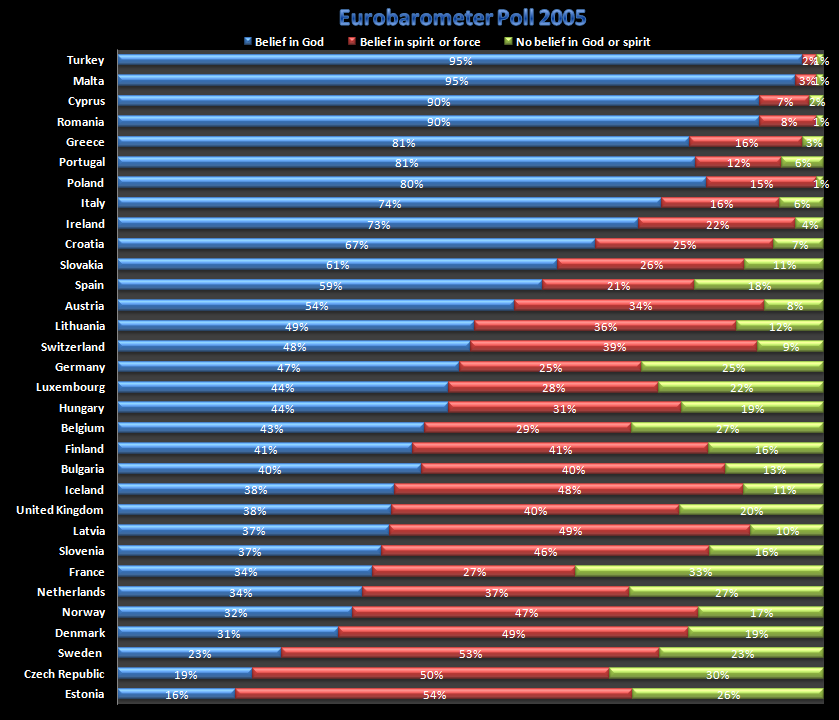
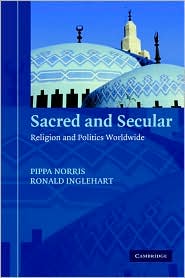
The United States is exceptionally high in religiosity in large part, we believe,
because it is also one of the most unequal postindustrial societies under comparison.
Relatively high levels of economic insecurity are experienced by many sectors of U.S. society,
despite American affluence, due to the cultural emphasis on the values of personal responsibility, individual achievement, and mistrust of big government,
limiting the role of public services and the welfare state for basic matters such as healthcare covering all the working population.
Sacred and secular: religion and politics worldwide
By Pippa Norris, Ronald Inglehart page 107-108
Notes From Off Center - Society and Theology from the View of a Christian Pragmatist
The question is why the United States is so much more religious than other nations in the North, or the West as it were.
If the US is such a wealthy nation, it seems to offer enough counter-factual evidence that this theory should have a large hole in it.
This is where the sobering argument about the social equality and distribution of health and wealth of the US comes into play.
The US has a lower life expectancy and a higher infant mortality rate than many other wealthy post-industrial nations like the UK, Japan, or Sweden among others.
PEDOPHILE PRIESTS


"Nor must we overlook the probability of the constant
inculcation in a belief in God on the minds of children
producing so strong and perhaps as inherited effect on their brains not yet fully developed,
that it would be as difficult for them to throw off their belief in God,
as for a monkey to throw off its instinctive fear and hatred of a snake."
* * *

Religious indoctrination
is
A tattooing of the brain

Religious indoctrination
is
Scarring of the Soul

Religious indoctrination
is
Permanent Marring of the Mind
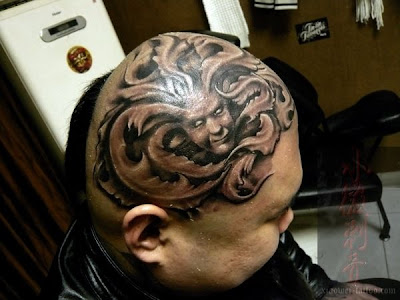
* * *
James Buchanan 15th president of the United States
James Buchanan, Jr. (April 23, 1791 – June 1, 1868) was the 15th President of the United States from 1857–1861
and the last to be born in the 18th century.
"I have seldom met an intelligent person whose views
were not narrowed and distorted by religion."
Buchanan, James
Views of religion, Part 1
By Rufus King Noyes - page 282 (Biography & Autobiography - 1906 - 783 pages)
Everybody's magazine - page 195 - http://books.google.com/books?id=x4_NAAAAMAAJ&pg=PA195&lpg=PA195&dq=
James Buchanan, cited in Jonathan Miller. (2004). A Brief History of Disbelief [TV-Series]. BBC Four.
* * *
THE TRIUMPH OF EVOLUTION
Darwin and Einstein
Holy Heretics

Even in America's
most reactionary religious regions
you can't teach creationism
in Science classes anymore.
creationism
1. the doctrine that the true story of the creation of the universe is recounted in the Bible.
2. the doctrine that God creates out of nothing a new human soul for each individual born.
Random House Webster's

"Breathtaking inanity"
is how the Judge characterized the Dover, PA school board's attempt
to cast doubt on the theory of evolution.http://www.time.com/time/health/article/0,8599,1142625,00.html

Judge John E. Jones III made a landmark ruling in Kitzmiller v. Dover Area School District

The judge barred the Pennsylvania school district from mentioning "intelligent design" as an alternative to evolutionary theory in a scathing opinion that criticized local school board members for lying under oath in trying to inject religion into science classes.
U.S. District Judge John E. Jones III, a Republican appointed by President Bush, did not confine his opinion to the missteps of a local school board. Instead he explicitly sought to vanquish intelligent design, the argument that aspects of life are so complex as to require the hand, subtle or not, of a supernatural creator. This theory, he said, relies on the unprovable existence of a Christian God and therefore is not science."
WaPo called Jones's decision "an exclamation mark on a courtroom battle widely hailed as the successor to the Scopes "Monkey Trial" of 1925; WaPo writers David Brown and Rick Weiss add:
"When evolution's defenders find themselves tongue-tied and seemingly bested by neocreationists – when they believe they have the facts on their side but do not know where to find them – this 139-page document may be the thing they turn to."
This whole sordid episode, fostered by idiots the unevolved, has been a colossal waste of taxpayer money and intellectual bandwidth. The scary part of it is that there is a uncomfortably large swath of anti-Americans who want to impose their religious views on the rest of the nation.
Yes, I said anti-American, because that is precisely what that philosophy is: It violates — quite selfishly — the very basis of the Freedoms this nation was founded on.
U.S. District Judge John E. Jones III, a Republican appointed by President Bush, did not confine his opinion to the missteps of a local school board. Instead he explicitly sought to vanquish intelligent design, the argument that aspects of life are so complex as to require the hand, subtle or not, of a supernatural creator. This theory, he said, relies on the unprovable existence of a Christian God and therefore is not science."
WaPo called Jones's decision "an exclamation mark on a courtroom battle widely hailed as the successor to the Scopes "Monkey Trial" of 1925; WaPo writers David Brown and Rick Weiss add:
"When evolution's defenders find themselves tongue-tied and seemingly bested by neocreationists – when they believe they have the facts on their side but do not know where to find them – this 139-page document may be the thing they turn to."
This whole sordid episode, fostered by idiots the unevolved, has been a colossal waste of taxpayer money and intellectual bandwidth. The scary part of it is that there is a uncomfortably large swath of anti-Americans who want to impose their religious views on the rest of the nation.
Yes, I said anti-American, because that is precisely what that philosophy is: It violates — quite selfishly — the very basis of the Freedoms this nation was founded on.
Guess that leaves Gay Marraige and the War on Christmas as the remaining issues who’s intelligent nefarious design is to distract the populace from issues of Guns and Butter . . .
Sources:
Defending Science by Defining It
David Brown and Rick Weiss
Washington Post, Wednesday, December 21, 2005; Page A20
http://tinyurl.com/7dlum
Judge Rules Against ‘Intelligent Design’
Dover, Pa., District Can’t Teach Evolution Alternative
Michael Powell
Washington Post, Wednesday, December 21, 2005; Page A01
http://tinyurl.com/catwa
IN THE UNITED STATES DISTRICT COURT
FOR THE MIDDLE DISTRICT OF PENNSYLVANIA
TAMMY KITZMILLER, et al. v DOVER AREA SCHOOL DISTRICT, et al
Case No. 04cv2688
Kitzmiller v DOVER AREA SCHOOL DISTRICT.pdf
Defending Science by Defining It
David Brown and Rick Weiss
Washington Post, Wednesday, December 21, 2005; Page A20
http://tinyurl.com/7dlum
Judge Rules Against ‘Intelligent Design’
Dover, Pa., District Can’t Teach Evolution Alternative
Michael Powell
Washington Post, Wednesday, December 21, 2005; Page A01
http://tinyurl.com/catwa
IN THE UNITED STATES DISTRICT COURT
FOR THE MIDDLE DISTRICT OF PENNSYLVANIA
TAMMY KITZMILLER, et al. v DOVER AREA SCHOOL DISTRICT, et al
Case No. 04cv2688
Kitzmiller v DOVER AREA SCHOOL DISTRICT.pdf

Religion is all bunk.
Thomas Edison

Padma Vibhushan Subrahmanyan Chandrasekhar,
(October 19, 1910 – August 21, 1995)[3] was an Indian born American astrophysicist.
He was a Nobel laureate in physics along with William Alfred Fowler for their work in the theoretical structure and evolution of stars.[1]
He was the nephew of Indian Nobel Laureate Sir C. V. Raman.
"God was a hypothesis invented by man to regulate man's conduct
and establish order and behavior between man and man."
Chandra By Kameshwar C. Wali - Page 59

Religion is an illusion and it derives its strength from the fact
that it falls in with our instinctual desires.
Leading scientists still reject God
Nature, Vol. 394, No. 6691, p. 313 (1998) © Macmillan Publishers Ltd.Sir — The question of religious belief among US scientistshas been debated since early in the century.Our latest survey finds that,among the top natural scientists,disbelief is greater than ever —almost total.We found the highest percentage of belief among NAS mathematicians(14.3% in God, 15.0% in immortality).Biological scientistshad the lowest rate of belief(5.5% in God, 7.1% in immortality),with physicists and astronomers slightly higher (7.5% in God, 7.5% in immortality).--
Among leading scientists — defined as members of the National Academy of Sciences — 72.2% expressed disbelief
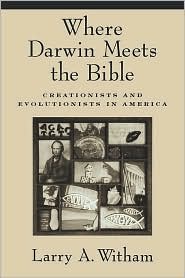
Where Darwin meets the Bible: creationists and evolutionists in America
By Larry A. Witham Page 272
Oxford University Press, USA ISBN-13: 9780195182811
http://books.google.com/books?id=llzwy_Ft1DQC&pg=PA272&dq=
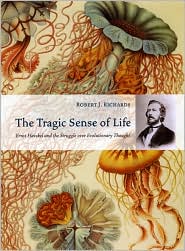
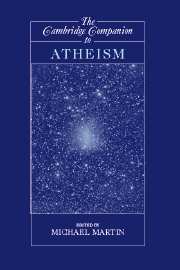
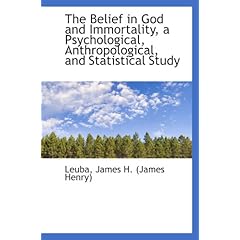

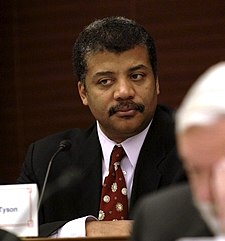


The Tragic Sense of Life
By Robert J. Richards Page 385
The Cambridge companion to atheism
By Michael Martin Page 312Series: Cambridge Companions to Philosophy

The belief in God and immortality, a psychological, anthropological, and statistical study
By James Henry Leuba page 274
* * *
Google video 1/1
Neil deGrasse Tyson
"The Perimeter of Ignorance"
"What I want to put on the table is not
why 85% of scientists
in the National Academy of Science reject God.
I want to know why the others don't".
Neil deGrasse Tyson

Neil deGrasse Tyson
Astrophysicist & Director, Hayden Planetarium
"Science is a philosophy of discovery...
Intelligence design (aka GOD) is
a philosophy of ignorance".
Neil deGrasse Tyson
Video Content Adapted from Natural History magazine
November 2005
The "Darwin" Issue

Session 2 - Beyond Belief 2006 - 1:15:46 - Nov 5, 2006 - with Steven Weinberg, Lawrence Krauss, Sam Harris, Michael Shermer.
"The reason why there are so few
Muslim Nobel Prize winners is religion".
"Why I was not worried that the Republican nominated federal judge
would rule against Intelligent Design?
because Republicans do not want to die poor".


